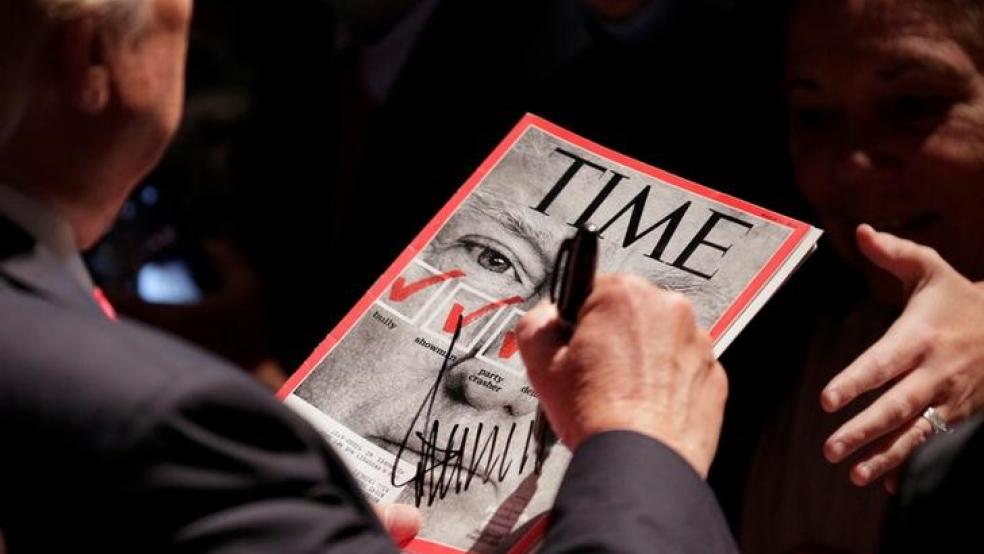Two top economic advisers to the Donald Trump campaign are out with an op-ed in The Washington Post today defending the Republican presidential nominee’s policy proposals and promising that they will revitalize the U.S. economy by sparking growth.
Tellingly, though, they do not associate themselves with the 4 percent (or higher) growth Trump promised when he rolled out his plan during an appearance in New York last week. Nor do they explain how Trump’s massive proposed tax cuts would actually be paid for.
Peter Navarro, an economist and professor at the University of California-Irvine, and private equity investor Wilbur Ross penned the article, which appeared on the Post’s website on Friday.
Related: 4 Reasons Trump’s Economic Policies Would Be a Disaster
After attacking Democratic nominee Hillary Clinton’s proposals as “growth-inhibiting,” they write, “In sharp contrast, Donald Trump’s plan is growth-inducing. It would cut taxes, reduce regulations, remove restrictions on energy development and eliminate our debilitating trade deficit. As growth rapidly accelerated, Trumpnomics would generate millions of additional jobs and trillions of dollars in additional income and tax revenue.”
The main thrust of their argument appears to be that the combination of dramatic cuts to the business tax rate and changes to how the U.S. regulates international trade would bring jobs back to the country in droves, with beneficial effects on the economy.
In particular, they promise, “Trump would eliminate the trade deficit not just by cracking down on currency manipulation, intellectual property theft and other mercantilist cheating. He would also negotiate new deals and renegotiate bad deals, such as NAFTA, according to the Trump trade doctrine: Any deal must increase growth, reduce the trade deficit and strengthen the manufacturing base.”
Their faith in Trump’s trade proposals puts them at odds with the majority of economists who believe Trump’s policies would fall somewhere on the scale between “bad for the economy” and “a complete disaster.”
Related: Trump Is Trouncing Clinton When It Comes to Running Up the Debt
They also make little effort to reconcile Trump’s promises to lower taxes while not touching defense spending, Medicare or Social Security with the need to pay for his massive tax cuts.
“As our economy grows faster and millions of Americans go back to work, tax revenue would rise, safety net payments would fall and the Trump plan would travel along a fiscally responsible path that achieves revenue neutrality,” they write. “We conservatively estimate a more than $2 trillion revenue boost from Trump’s trade, regulatory and energy reforms alone — a significant offset to the revenue reductions from his tax cuts.”
However, promising that “the Trump plan would travel along a fiscally responsible path” is nothing but hand-waving until the path is laid out in at least some level of detail. To this point neither Trump nor his advisers have done that.
They conclude by complaining about “Trump’s detractors” who “insist that the United States’ days of rapid growth are over. Such defeatism defies the American spirit and ignores the bad tax, trade, regulatory and energy policies now shackling the U.S. economy. It’s time that a president set this nation’s economy free.”
At least they didn’t advise everyone to clap louder.





